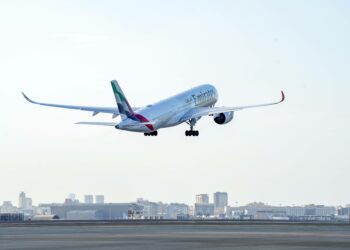Florian Kriechbaumer, director of operations and development, Interel, explains why now is the time for the hotel industry to embrace The Internet of Things
 The Internet of Things (IoT), already a major trend in the consumer space with devices such as the Nest thermostat, Philips Hue smart light bulbs and Fitbit wrist bands that measure heart rate, is set to take the hospitality sector by storm.
The Internet of Things (IoT), already a major trend in the consumer space with devices such as the Nest thermostat, Philips Hue smart light bulbs and Fitbit wrist bands that measure heart rate, is set to take the hospitality sector by storm.
By 2020, it’s expected that 50 billion ‘’things” will be connected to the internet. In the context of hospitality, there is initial evidence that this trend will offer unparalleled opportunities for improved guest experience and operational efficiencies as well as new prospects for more sustainable hotel operations. It’s therefore no surprise that IoT is at the forefront of research and development for hotel guest room technology.
Although adoption is still at an early stage, more and more hoteliers are realising the potential that IoT solutions can bring to the table in terms of innovation and guest experience, and are taking steps to reap its benefits.
One such step is determining how IoT devices will communicate with other hotel systems and how hotel staff will interact and manage them, which requires a new infrastructure layer in the property. Most IoT devices rely on battery power, which means they need to use low energy, low range wireless networks (such as Bluetooth or ZigBee) to communicate, instead of utilising WiFi, as frequent battery replacements or recharging is not feasible in hotels.
A trend we are observing is that hotel Guest Room Management Systems (GRMS) are used as the missing layer to bridge this IoT infrastructure gap. As most upscale and luxury hotels are already installing GRMS as a corporate standard to manage environmental controls in the guest room such as lighting, curtains, guest requests, maintenance and energy management, this eliminates the need for investment in additional technology.
An example of how IoT is being introduced as part of GRMS in hotels today, is through smart thermostat devices. With connectivity to sensors for motion, temperature and humidity, these thermostats can make more intelligent decisions when it comes to guest comfort and energy saving through the detection of activity in the guest room.
Through the hotel’s existing WiFi infrastructure, the thermostat can also exchange data over the IP network in the hotel, allowing for remote monitoring and configuration. By also equipping it with low energy, low range wireless communication capability, they can serve as a gateway for other IoT devices to exchange data over the network, which otherwise wouldn’t be possible.
Such devices may include the door lock, which can send access logs to a server in the security office without requiring its own infrastructure, or a door contact in the minibar, sending its status to a housekeeping tool; letting staff know which minibars need to be checked and refilled.
The possibilities and applications for IoT in hotels are endless, yet nobody knows exactly what the guest of the future expects and what applications will become available to drive efficiency and sustainability in hotels. What we do know is that for hoteliers to truly advance in this space, it’s critical that they have the right infrastructure in place.
Hence, now is the right time to embrace IoT and to get ready for the future of hospitality. To do so, hotels under renovation or construction must consider future-proofing their technology infrastructure to take full advantage of the promises of IoT. The installation of a low power, low range, IoT enabling wireless network is a prerequisite for the many IoT devices and applications of the future.
About the author: Florian Kriechbaumer joined Interel in 2015 and looks after software development and global operations based out of Dubai.
His previous engagements include high growth companies, running product strategy and development at Iris Software Systems, creator of guest-facing hospitality applications for high profile clients such as Ritz Carlton, Mandarin Oriental and AccorHotels.
He has also held various positions and consultancy engagements in hospitality organisations such as Kempinski and Jumeirah.



































































